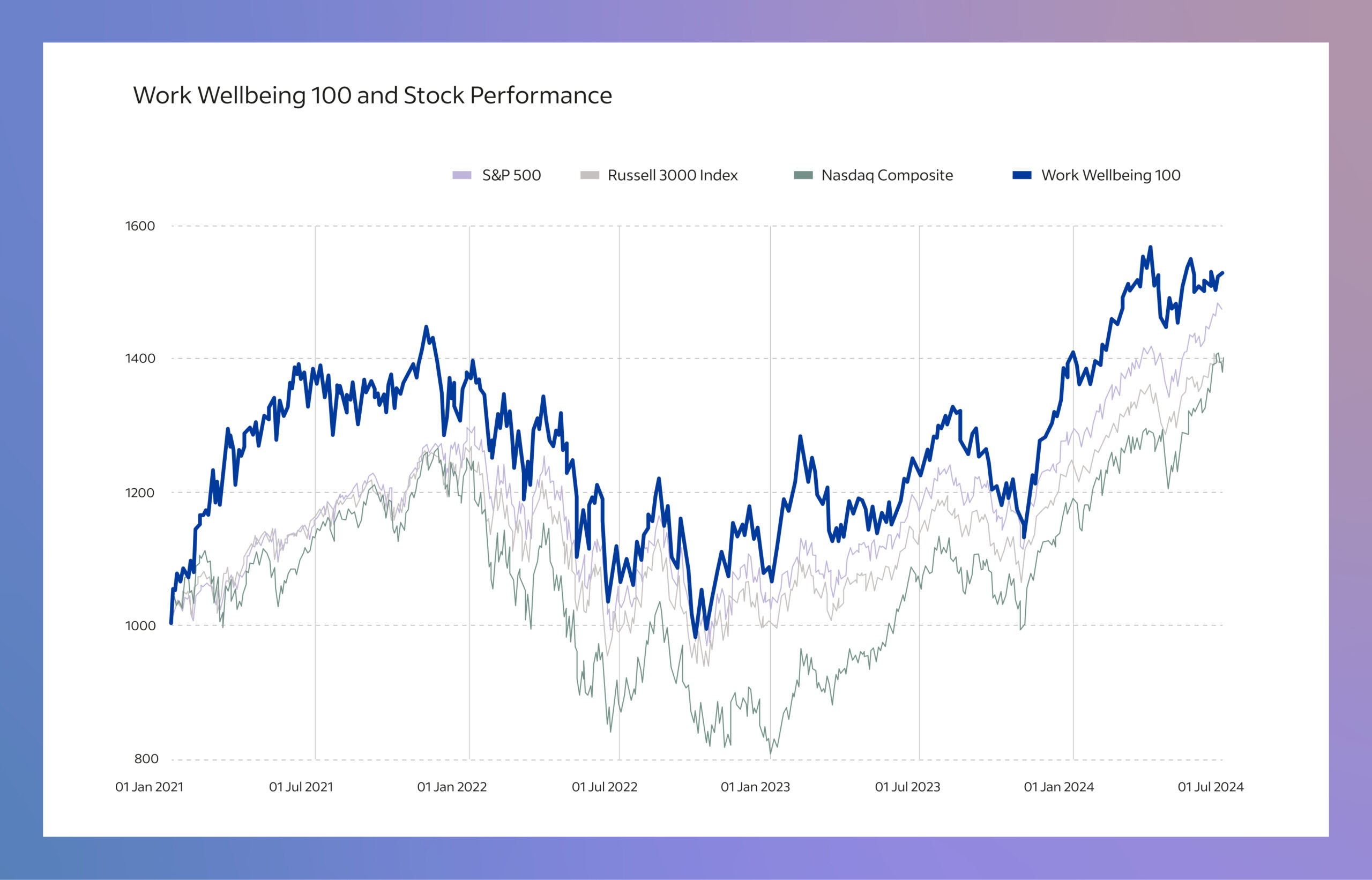Corporate Wellness Predictions for 2025
Last Updated Dec 17, 2024

The demands of the modern workplace are taking a toll. Employees are facing unprecedented levels of burnout and stress, and their mental health is suffering. It's clear that the current ways of doing things are no longer sustainable. As a CEO, I'm witnessing a fundamental shift in the workplace. Employers are no longer satisfied with high turnover rates and disengaged employees. Employees want more than just a salary; they're seeking purpose, connection, and comprehensive support for their overall wellbeing. Here's my take on how corporate wellness will need to evolve to meet these changing needs over the next year.
- Companies Move Past “Check the Box” Initiatives and Focus on Driving Employee Engagement
In 2025, we'll see a shift in how companies approach employee health and wellness benefits. It's no longer about offering a laundry list “nice to have” of perks; it's about delivering impactful programs that employees truly use and value. Data will be king, with a focus on high enrollment and utilization rates. This strategic approach ensures that benefits are not just a line item, but a powerful tool for attracting, retaining, and empowering top talent. The future of employee benefits is about making a tangible difference in employees' lives, not just checking boxes. This trend is fueled by the recognition that employees want meaningful benefits, and HR professionals need data to justify their decisions.
- Gamification Drives Wellbeing As Employees Crave Connection
We see the rise of organic wellness and “step” challenges among employees as an indicator of a growing interest in this approach. It's important to empower employees to create their own social events and gamification around wellbeing that can be done together or from anywhere. At the team level, this can make wellness initiatives more fun and engaging as a compliment to leader or HR led experiences. It also fosters employee initiative. Continuing to enhance gamification in our app is one the most requested features from our corporate clients. This is especially important as fitness is moving from a hobby to a core part of people’s identities, especially among Gen Z. According to McKinsey, fifty-six percent of US Gen Zers consider fitness a “very high priority,” compared with 40 percent of US consumers overall.
- Wellbeing Will Become a Key Business Performance Indicator
Industry leaders will begin measuring employee wellbeing with the same rigor as their balance sheet. This makes sense when you consider that a Deloitte survey found 90% of CEOs believe that improving employee wellbeing is important to the success of their business, and a Gallup study showed companies with high levels of employee wellbeing outperform the market by 147%. After all, healthy and happy employees are more productive, creative, and engaged. The jobs site Indeed, in partnership with Oxford, identified the top public companies for work wellbeing and found these companies collectively outperformed stock market benchmarks – proving investing in wellbeing is better for people and business.

Graph: This line graph from Oxford simulates an investment overtime in the Work Wellbeing 100 companies. A $1000 in the Work Wellbeing 100 companies in January 2021 would have grown to $1,533 by July 2024 compared with $1,479, $1,408, and $1,401 had they invested instead in the S&P 500, Nasdaq Composite, or Russell 3000, respectively. Source: Workplace Wellbeing and Firm Performance; University of Oxford, July 2024.
- Mental Health Deserves a Holistic Approach
Mental health will be the defining challenge for workplace wellness. We’ll see forward-thinking companies move beyond merely offering mental health resources; they'll invest in proactive, preventative strategies that address the root causes of stress and burnout. This includes recognizing the powerful connection between physical and mental health. Research shows that physical activity isn't just good for our bodies—it's a potent tool for improving mental wellbeing.
The message is clear: employees are demanding a workplace that prioritizes their mental health. Companies that fail to meet this need risk losing top talent. Wellhub's research reveals a staggering 76% of employees believe their employers should do more to support their mental wellbeing, and a significant number have already left jobs due to mental health concerns.
- Employers Will Need to Address GLP-1s
While GLP-1 weight loss drugs offer promising health benefits, their high costs and the evolving landscape present complex challenges for employers and HR teams. That doesn’t mean employers will be able to avoid communicating about them to their employees.
One way employers can address the high cost of GLP-1s is by providing supplementary resources and education to help employees maximize the benefits of these medications in a cost-effective and sustainable way. Think comprehensive programs that combine medication (where appropriate) with fitness plans, personalized nutrition guidance, stress management techniques, and sleep optimization strategies. This holistic approach will not only help employees achieve better results, but also potentially reduce the long-term need for medication, leading to significant cost savings for both the individual and the company.
- AI Will Unleash Access to Personalized Wellbeing
Imagine having a personal wellness coach available 24/7, right in your pocket. That's the promise of AI-powered coaches and personal trainers. This is much more than just prompting your favorite AI tool for recommended workouts – these coaches will be able to provide personalized guidance, tracking progress, and guiding employees towards healthier habits. This is exciting because it democratizes access to personal training, providing access to everyone, regardless of their location, schedule or income status.
Category
Share

Cesar Carvalho is the CEO and Co-Founder of Wellhub, a corporate wellness platform that connects employees to the best partners for fitness, mindfulness, therapy, nutrition, and sleep, all included in one subscription. A champion of wellbeing, he is one of millions of employees who use Wellhub to move, eat, sleep, and feel better, leading to better engagement and productivity at work. At Wellhub, Carvalho and his team have developed a formula that more than doubles the number of employees engaged with wellness.
Originally from Brazil and now based in New York, Carvalho launched Wellhub while attending Harvard Business School. He previously held leadership roles at McKinsey & Company and AC Nielsen. Carvalho has been recognized with a number of awards, including Best Large Company CEO by Comparably (2023 and 2024), Ernst & Young Entrepreneur of the Year, New York, Goldman Sachs 100 Most Intriguing Entrepreneurs and one of the Top 25 Best CEOs for Diversity and Women. He received a Bachelor's Degree in Business from the Universidade de São Paulo.
Subscribe
Our weekly newsletter is your source of education and inspiration to help you create a corporate wellness program that actually matters.
Subscribe
Our weekly newsletter is your source of education and inspiration to help you create a corporate wellness program that actually matters.